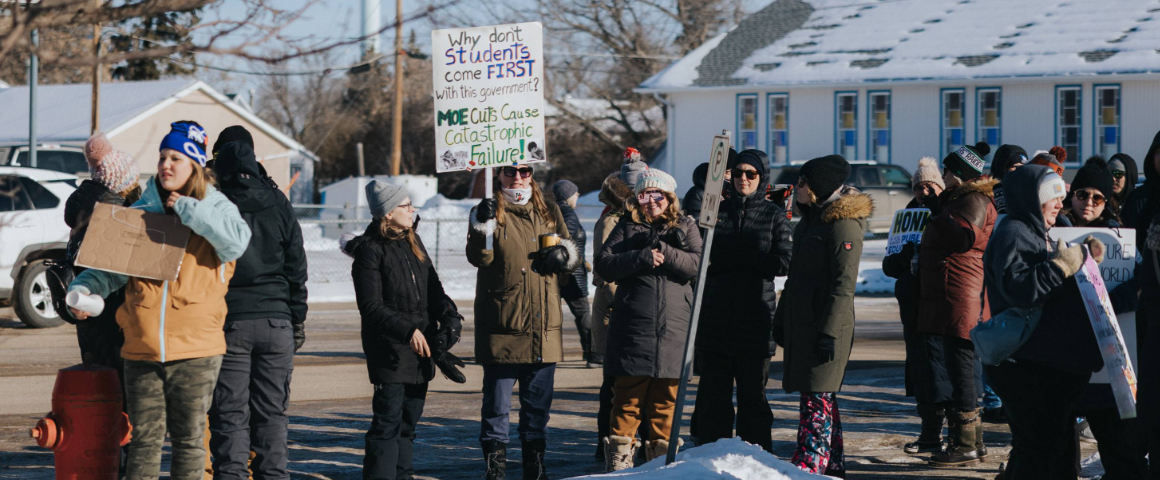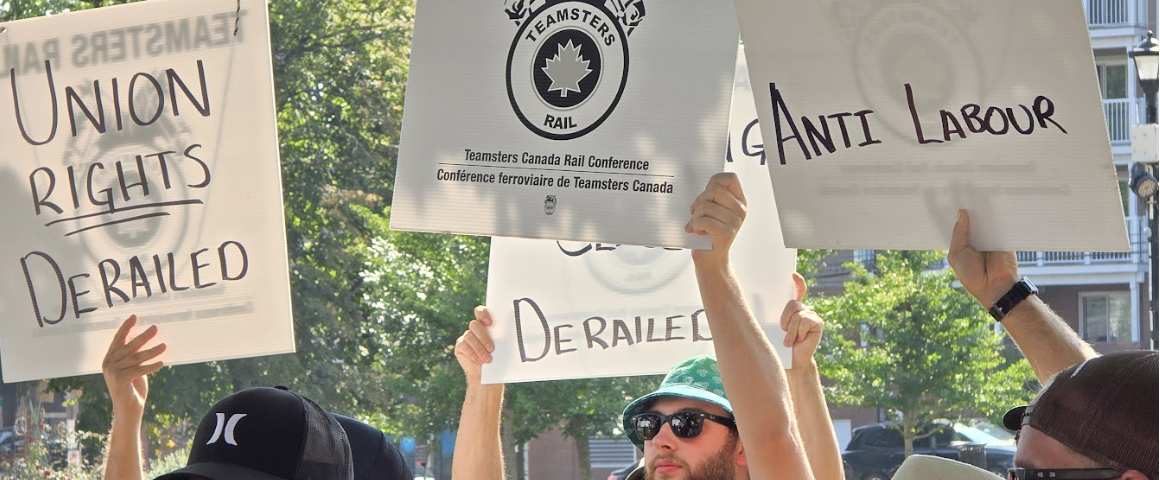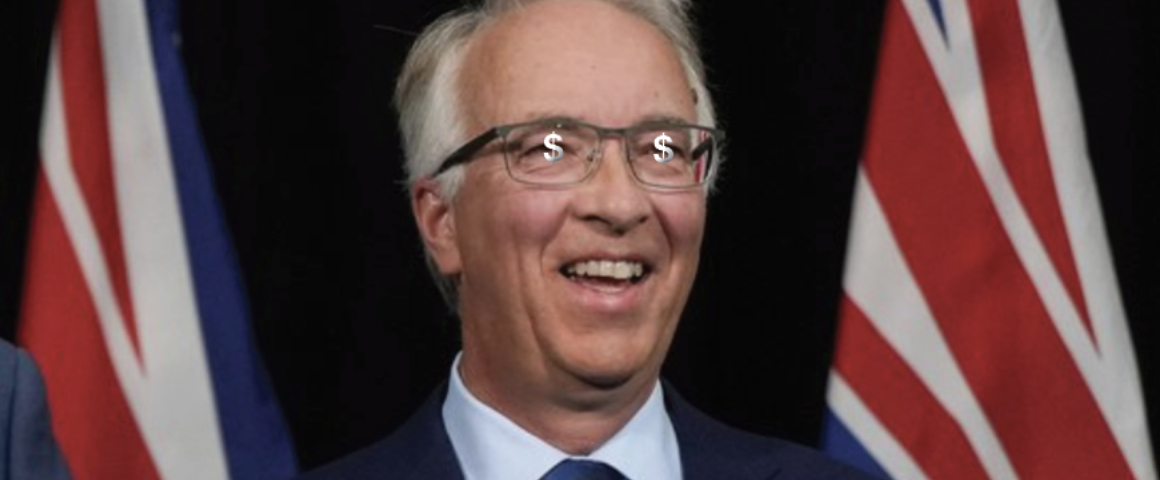PV staff
The Saskatchewan Teachers’ Federation (STF) is in the midst of another round of province-wide job actions, this time including one-day rotating strikes at select schools as well as one-day withdrawal of noon-hour supervision and extracurricular activities across several locations.
The STF, which represents over 13,000 teachers in Saskatchewan, has been negotiating for months against the right-wing provincial government of Scott Moe which has stubbornly refused to bargain on the key issues of class size and complexity.
In the face of this intransigence, the union began to build pressure on the government, beginning with a series of mini rallies at government MP offices across the province in October and November. In January, the campaign escalated into one-day province-wide walkouts on January 16 and 22, and now to a series of rotating one-day job actions.
Throughout, the STF has engaged parents, students and community members, and appealed for public support. The union has organized information sessions to explain the issues that teachers are facing, and it launched a website for the public to appeal to the government for a decent deal.
More than one out of ten people call on province to protect public education
In a sign that the government is increasingly isolated, since January over 125,000 people – more than one out of every ten residents in the province – have sent email and phone messages to Moe and Education Minister Jeremy Cockrill, calling on them to bargain in good faith and negotiate a deal that ensures proper funding for public education.
Public school funding in Saskatchewan fell from the highest among Canadian provinces in 2016 to second last at present. The STF says that education cuts are preventing students from getting the support they need. “Reductions we’ve seen include 7 percent to teacher counsellors, 63 percent to teacher-librarians and about 5 percent to school psychologists.”
At the same time, while teacher staffing numbers declined by almost two percent for 2022-23, Ministry of Education date shows significant enrolment growth of three percent, or over 5600 students, from 2022-23 to 2023-24.
“Our government’s own data shows ballooning enrolment in the majority of our school divisions, but teachers and other critical resources aren’t keeping pace with this growth,” said STF President Samantha Becotte before the January 16 one-day strike. “The math is simple: More students with fewer teachers means class sizes are growing. Students are facing long wait times for special supports such as psychologists and speech language pathologists. Others are simply falling through the cracks, despite the best efforts of teachers and school staff. There is simply not enough support.”
The union says that government cuts and failure to keep up with enrolment growth has created a funding gap of more than $400 million, meaning that’s how much is needed for students today to have the same level of support as a student did in 2016.
But despite the union’s escalating campaign and enormous public support for teachers, Moe still refuses to negotiate the issues of class size and complexity and, in fact, is trying to frame the main issue as one of wages.
“The day after our first strike action, the Minister of Education attempted to make it all about salary demands,” said Becotte. “If he had been paying attention, he’d know our job action was about so much more than that – we’re seeking long-term commitments from government on critical issues impacting students including class size and complexity, not patchwork pilot projects that don’t fix the systemic issues in our schools.”
The STF has also begun mobilizing increased pressure on elected school trustees. “Teachers are taking action for one reason: students,” says Becotte. “We’re trying to secure more funding for school divisions. Yet, local school trustees are largely silent. Why aren’t locally elected trustees speaking out about how a lack of funding means they can’t meet the needs of their communities?”
The STF’s struggle isn’t confined to Saskatchewan – it is reflected throughout Canada as governments of all political stripes try to minimize funding for public education, healthcare and other key services that working people depend on. In the process, they are creating a crisis for these services and opening the door to increased privatization, something which corporate profiteers are only too happy to encourage.
This is one reason the Saskatchewan teachers have received widespread support and solidarity from teachers’ and education workers’ unions across the country.
[Photo: STF X]
Support socialist media!
If you found this article useful, please consider donating to People’s Voice or purchasing a subscription so that you get every issue of Canada’s leading socialist publication delivered to your door or inbox!
For over 100 years, we have been 100% reader-supported, with no corporate or government funding.




